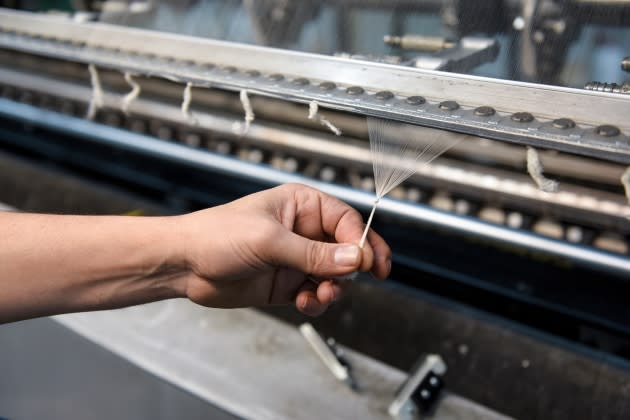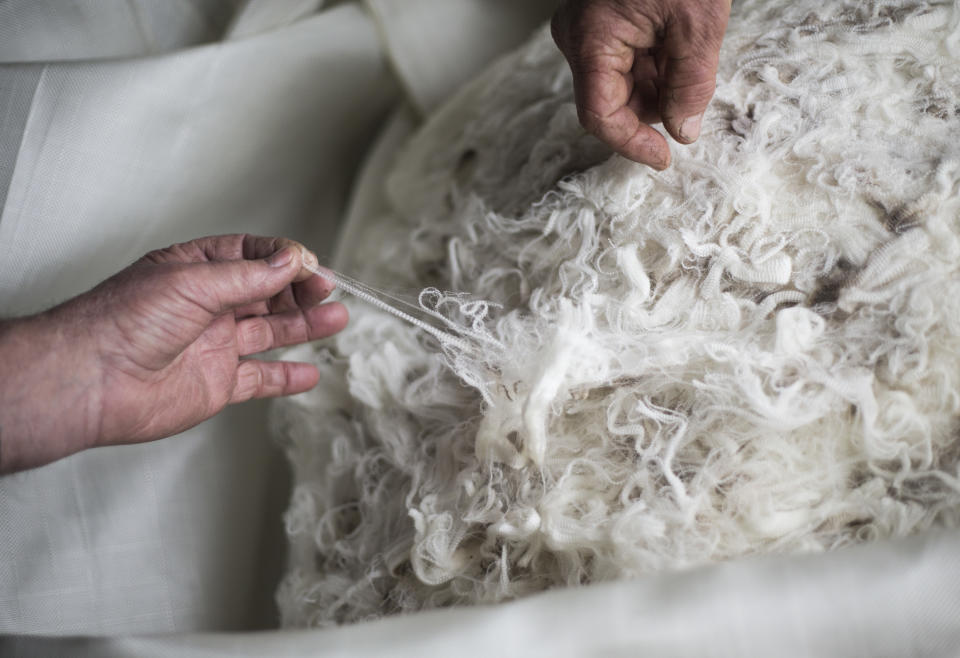Chargeurs PCC Sees Sustainable Luxury, Acquisitions as Next Growth Drivers

MILAN — Apparel interlinings manufacturer Chargeurs PCC has been providing structure, literally, to fashion for more than half a century. Now, the company is ready to scale up the business via sustainable luxury fashion, acquisitions and services.
Much of Chargeurs’ strength has laid in the company’s ability to evolve and adjust, and to sense where the market was headed, for example, fashion’s embrace of stretch fabrics for enhanced practicality.
More from WWD
“We’ve always pioneered and championed innovation,” said Gianluca Tanzi, Chargeurs PCC’s chairman and chief executive officer, referencing the warp knit weft insert conceived more than 50 years ago in partnership with loom maker Karl Mayer.
“The second driver of growth is that we’ve grown into a multinational company with widespread distribution. We develop a global collection aimed at all clients across regions,” he said, highlighting that Chargeurs PCC has 30 regional offices.
In 2022, the company posted 220 million euros in sales, up 33.4 percent versus the previous year.
Sustaining momentum is Tanzi’s main task going forward.
The company generates the bulk of its revenues in the U.S., followed by France and Italy, where the luxury industry is overperforming and beating other segments.
Its global presence has come in handy to tap into emerging markets, too, including Colombia and Perú, currently go-to manufacturing hubs for garment-makers in the American continent. Plus, the company has leaned into its expertise to serve nascent luxury fashion businesses, including in Asia, where it is courting local designers.
“In addition to growing our market share and opening new markets, Turkey and Mexico currently being the ones on our radar, we believe that we should be able to sell products from different categories to our existing clients,” Tanzi said.
The executive is confident that the company’s diversification — for instance it also owns the Senfa enterprise located in France’s Alsace region that specializes in coatings — will help Chargeurs exploit new business avenues and simultaneously bank on “cross-selling.”
Its wide-ranging products includes interlinings weighing around half an ounce that are particularly useful for tulle gowns, but also linings and paddings.
The latter category includes the trademarked Nativa woolen stuffing, a luxurious alternative to man-made fibers and down typically employed for puffers.
Through its a Nativa product, Chargeurs forged ties with Gucci, inking a four-year, renewable partnership for the supply of the trademarked blockchain-backed woolen padding sourced from regenerative agriculture farms.

The product was developed and distributed through the company’s Chargeurs Luxury Fibers division and includes 100 percent woolen paddings, as well as a soon-to-launch product blending of 50 percent Thindown and 50 percent wool, both partially recycled.
The executive noted that the company generates 30 percent of its overall revenues from sustainable products.
“We are most dedicated to clients operating in the luxury segment,” he said, noting how premium companies are also a driver in research and development. Case in point, the Zero-Water interlinings dyed with a waterless formula were the result of couture clients upping the ante on their sustainability requests.
With R&D centers spread across production sites and three Innovation Studios strategically located in Milan, Paris and New York, key cities for the fashion business, Tanzi highlighted the company’s speed in developing new solutions.
Counting 7,000 clients overall, including European and U.S. designer brands and haute couture houses, the company sees further growth opportunities in the M&A space.
Chargeurs PCC is part of France-based Chargeurs, a holding company publicly listed on the Paris Stock Exchange, and its current composition is the result of acquisitions made over the years, of Péronne, France-based Lainière de Picardie in 1972, and PCC in 2018.
“We are always very attentive to opportunities and our goal is to grow both organically and by way of M&A activities geared at acquiring know-how and markets where we are lagging behind,” he said.
He dodged questions about whether the company has already spotted an acquisition target, beyond saying the team is carefully assessing a few businesses.
Best of WWD


